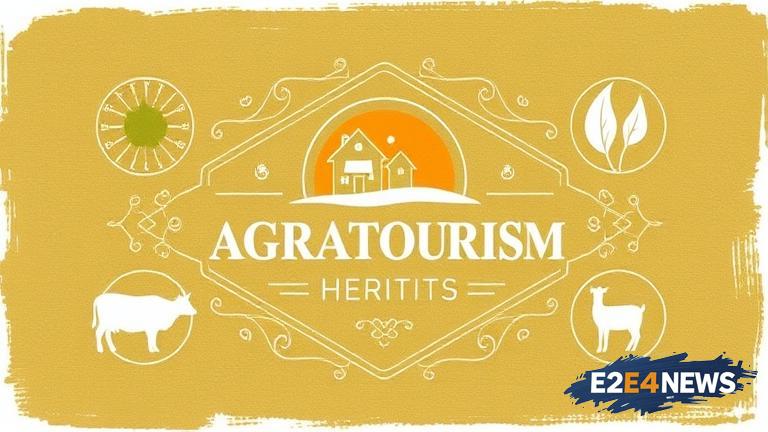Agritourism has become a vital component of rural economies, offering a unique opportunity for farmers and rural communities to diversify their income streams and showcase their way of life. However, with the increasing competition in the tourism industry, it is essential for agritourism operators to develop a strong brand identity that sets them apart from the rest. This is where storytelling comes in – a powerful tool that can help create an emotional connection with potential visitors and leave a lasting impression. By sharing the story behind their farm or rural business, agritourism operators can convey their values, mission, and unique selling proposition, making their brand more relatable and authentic. Effective storytelling can also help to create a sense of place and community, allowing visitors to feel like they are part of something special. Moreover, storytelling can be used to highlight the unique experiences and activities that agritourism operators offer, such as farm tours, animal encounters, and outdoor adventures. To develop a compelling story, agritourism operators should focus on their history, heritage, and cultural significance, as well as their commitment to sustainability and environmental stewardship. They should also showcase their people, including the farmers, artisans, and local characters who bring the rural community to life. In addition, agritourism operators can use storytelling to promote their local produce and products, such as artisanal foods, crafts, and souvenirs. By sharing the story behind these products, visitors can gain a deeper appreciation for the craftsmanship and care that goes into creating them. Furthermore, storytelling can be used to create a sense of urgency and scarcity, encouraging visitors to book their trip or purchase products before they miss out. To get started with storytelling, agritourism operators can use a variety of mediums, including social media, blogs, videos, and podcasts. They can also collaborate with influencers, bloggers, and content creators to help spread their story and reach a wider audience. Moreover, agritourism operators can use storytelling to create immersive experiences, such as guided tours, workshops, and events, that allow visitors to step into their story and become a part of it. By leveraging the power of storytelling, agritourism operators can create a loyal following of visitors who will return time and time again, and recommend their destination to friends and family. In conclusion, storytelling is a vital component of effective agritourism branding, allowing operators to create a unique and compelling narrative that sets them apart from the rest. By sharing their story, agritourism operators can attract visitors, create a sense of community, and promote their local produce and products. As the agritourism industry continues to grow and evolve, it is essential for operators to develop a strong brand identity that showcases their unique story and values. With the right storytelling strategy, agritourism operators can revitalize their rural tourism industry and create a thriving destination that attracts visitors from around the world. The benefits of storytelling in agritourism branding are numerous, and operators who fail to develop a compelling narrative risk being left behind. Therefore, it is essential for agritourism operators to invest in storytelling and make it a core component of their branding strategy. By doing so, they can create a loyal following of visitors, promote their local produce and products, and contribute to the growth and development of their rural community. In the end, the power of storytelling in agritourism branding is undeniable, and operators who harness this power will be well on their way to creating a successful and sustainable rural tourism industry.
